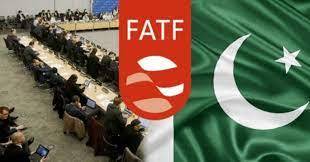
On Political Economy this week, Asad Ejaz Butt and Aqdas Afzal discuss the economic implications of re-election of President Xi in China, resignation of Liz Truss in UK and Pakistan’s exit from FATFs grey list.
Aqdas Afzal suggested that while it would be easier for Pakistan to access international finance after its exit from FATFs grey list, it’s difficult to view the development from the perspective of how Pakistan will benefit from it, it is better viewed from the perspective of the isolation Pakistan averted by exiting the grey list. It’s back into the fold of international economic order.
On a question about risks of authoritarianism and political divisiveness in China following consolidation of political control by President Xi, Aqdas believed that China has strong political institutions and Xi's control would not lead to immediate risks of authoritarianism.
There are no chances of change in China’s Pakistan policy either and both countries will stay the course vis-a-vis each other. China will continue its path to further economic development at least in the short-term. It needed a strong leader like Xi to retaliate American attempts at containing China which is why he became the second Chinese leader after Mao to get a third term.
The show concluded by discussing Britain and Liz Truss’s resignation. Dr Aqdas suggested that immigration is turning out to be big issue in Britain but the election of Rishi Sunak, a racial minority candidate of Indian origin might turn out to be a uniting factor for the Tory party and British democracy.
Political instability is causing the economic crisis that Britain is seeing right now.
https://youtu.be/DH0WfH8D8n0
Aqdas Afzal suggested that while it would be easier for Pakistan to access international finance after its exit from FATFs grey list, it’s difficult to view the development from the perspective of how Pakistan will benefit from it, it is better viewed from the perspective of the isolation Pakistan averted by exiting the grey list. It’s back into the fold of international economic order.
On a question about risks of authoritarianism and political divisiveness in China following consolidation of political control by President Xi, Aqdas believed that China has strong political institutions and Xi's control would not lead to immediate risks of authoritarianism.
There are no chances of change in China’s Pakistan policy either and both countries will stay the course vis-a-vis each other. China will continue its path to further economic development at least in the short-term. It needed a strong leader like Xi to retaliate American attempts at containing China which is why he became the second Chinese leader after Mao to get a third term.
The show concluded by discussing Britain and Liz Truss’s resignation. Dr Aqdas suggested that immigration is turning out to be big issue in Britain but the election of Rishi Sunak, a racial minority candidate of Indian origin might turn out to be a uniting factor for the Tory party and British democracy.
Political instability is causing the economic crisis that Britain is seeing right now.
https://youtu.be/DH0WfH8D8n0

